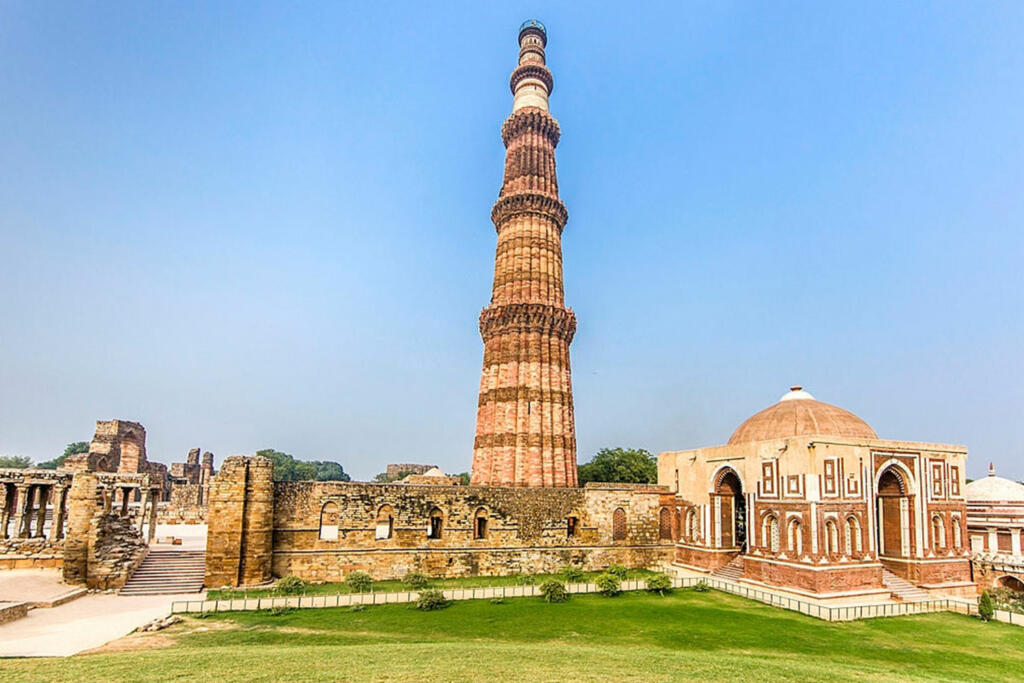Over the last few years, the aim of Sanatan Samaj has been to reclaim their rights of worshipping the deities which belong to Sanatan Dharma for ages. After claiming their worshipping rights in different Mandirs, the Hindus are now struggling to retrieve their authority on Hindu relics present inside the Qutub Minar.
What is the controversy?
On 24 May, the Delhi’s Saket Court addressed a plea filed on behalf of Hindu deity Bhagvan Vishnu, Jain deity Tirthankar Lord Rishabh Dev. Their Bhakts have filed a petition in Court seeking restoration of 27 Mandirs present within the Quwwat-Ul-Islam Masjid situated inside the Qutub Minar complex. Meanwhile, the Archaeological Survey of India (ASI) has submitted in Court that the existing status of the complex cannot be altered.
Read more: Was Qutub Minar Raja Vikramaditya’s celestial observatory?
Meanwhile Honourable Judge Nikhil Chopra questioned whether it is technically possible to restore the legacy. He asked, “What is the legal right? Assuming it was invaded, demolished, or some structure raised, let us assume it was not being used by Muslims. What is the important question is, can you now claim it to be restored under what basis? Now you want this monument to be turned into a temple calling it restoration, my question is how would you claim that the plaintiffs have a legal right assuming it existed about 800 years back?”
Is worshipping a fundamental right?
While addressing the suit filed, the Judge further referred to the “Ancient Monuments and Archaeological Sites and Remains (AMASR) Act, 1958” and the “Places of Worship Act, 1991”. Referring to them, the Court argued that there is no provision under these acts which allows for starting pooja at any living monument.
Read more: Sanctity of Shri Jagannath Puri Mandir should not become a victim of political tussle
As per ASI, it will be obstructive under AMASR Act 1958 to support the claiming of any person wanting a fundamental right to worship in a protected monument. “It will be contrary to the provisions of the AMASR Act, to agree with the contention of the respondents or any other person claiming a fundamental right to worship in this centrally protected monument” submitted ASI.
On the other hand, petitioners mentioned, “Every monument governed by Monument Act is exempted from the application of the Places of Worship Act. Nobody can dispute this. My test is on exclusion. When the Act exempts the application of Places of Worship Act, how the suit is dismissed on this basis?”
Read more: Places of Worship Act needs to go and the push needs to come from the government
Hindus are continuously striving to achieve their goal of the reiteration of Hindu Mandirs. While “Places of Worship Act” and “AMASR Act” are causing a hindrance to their objective. The denial to worship of Hindu deities in the Qutub complex has once again caused an obstruction towards reviving our cultural heritage.
